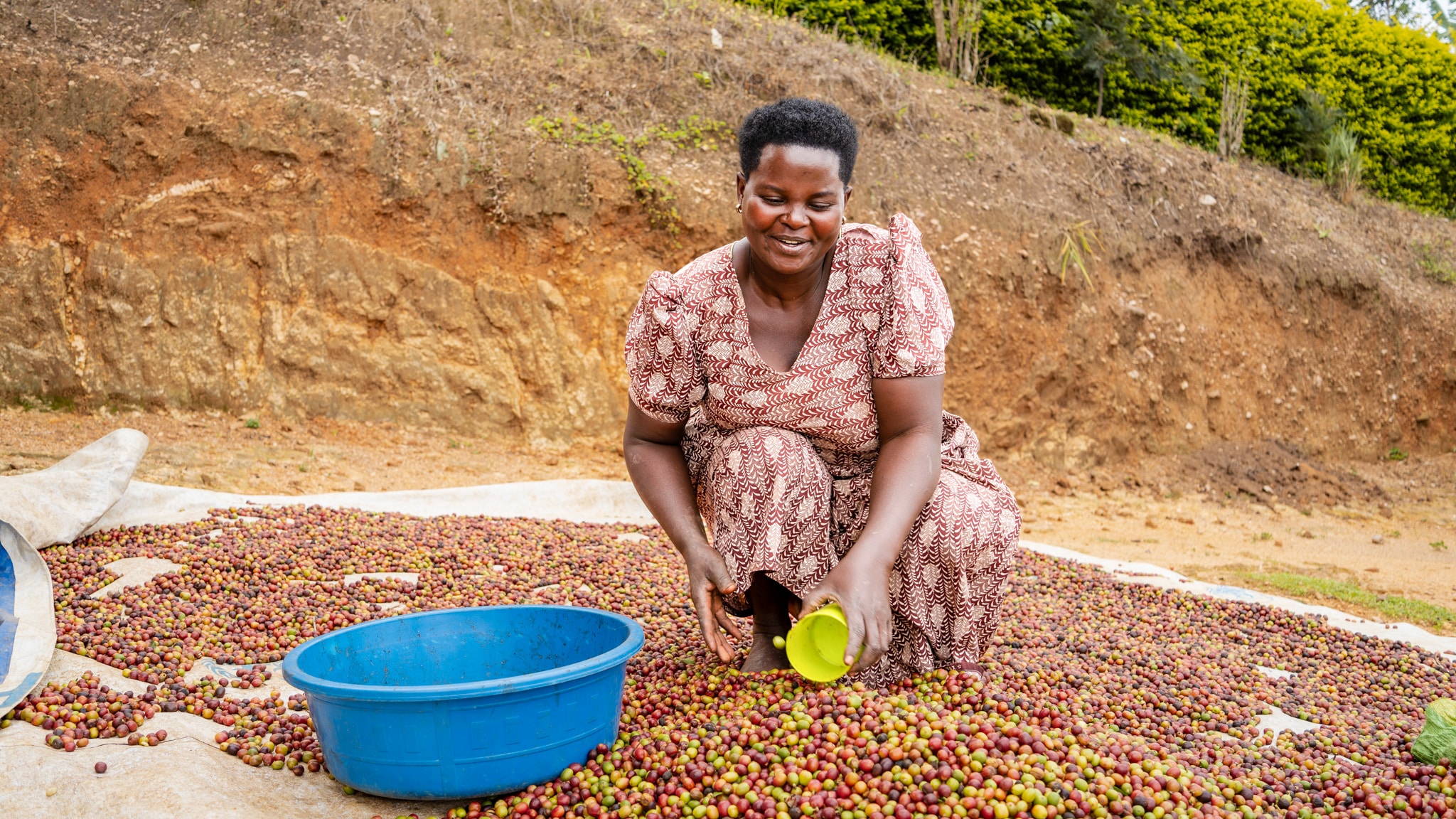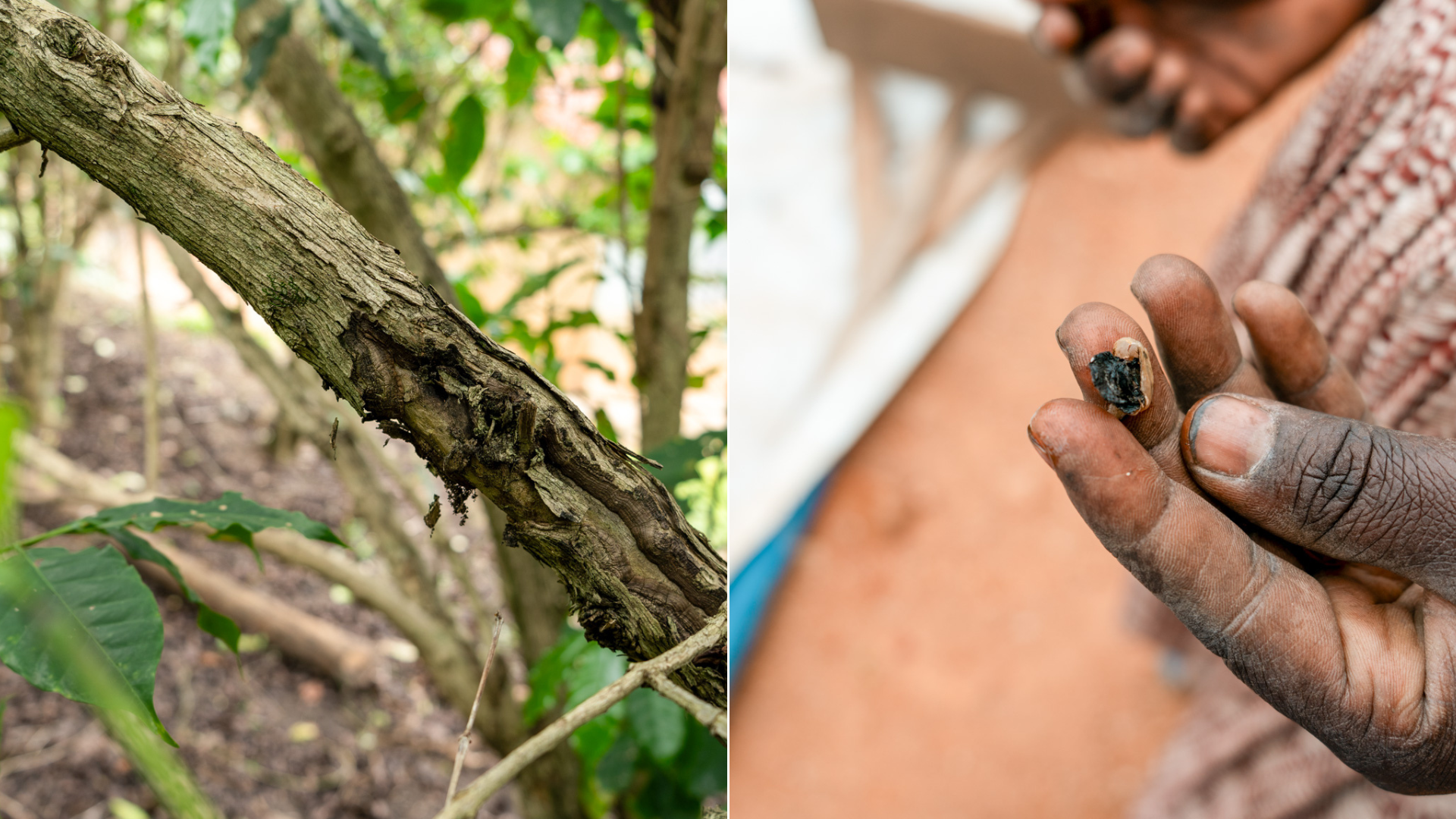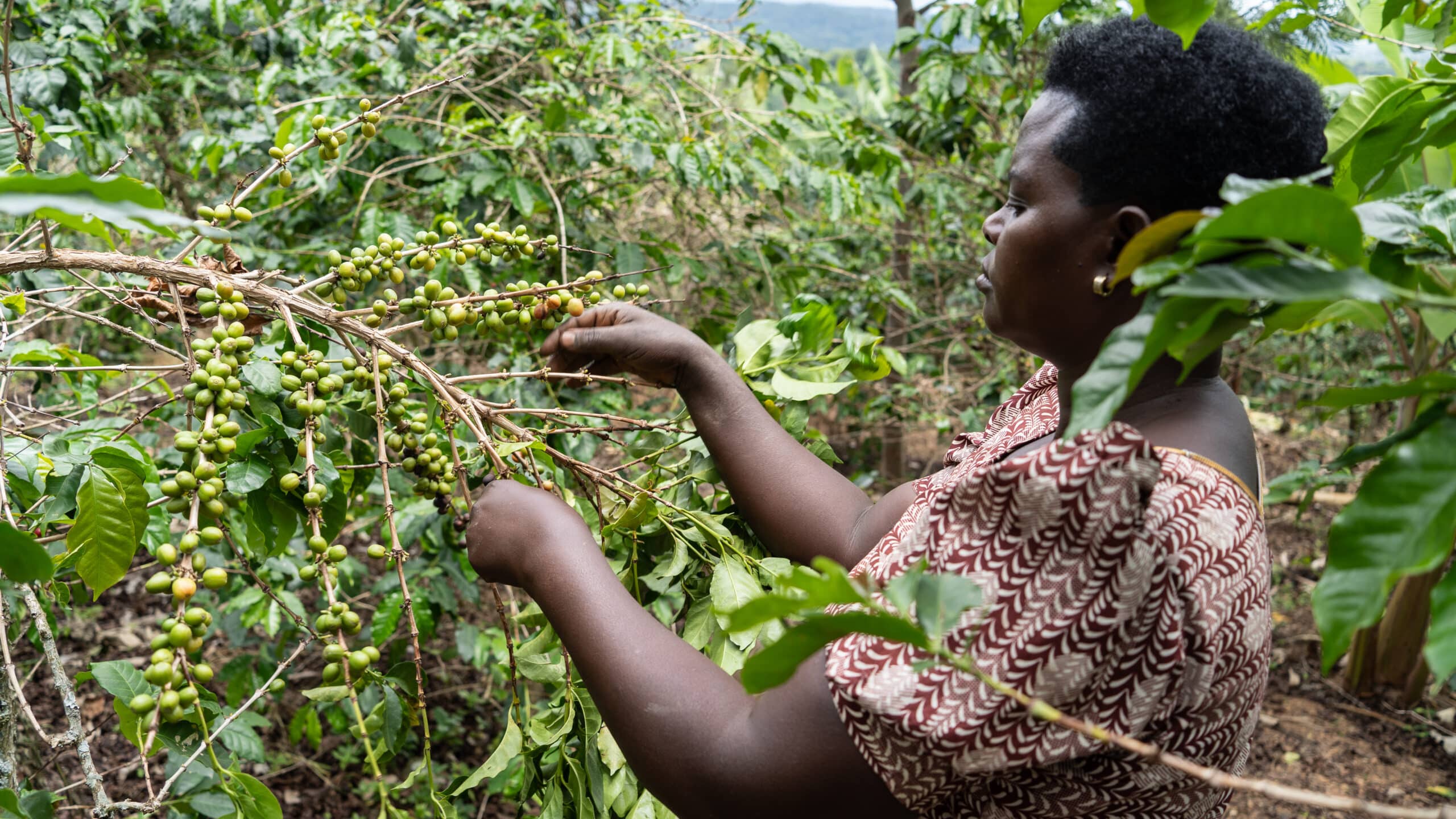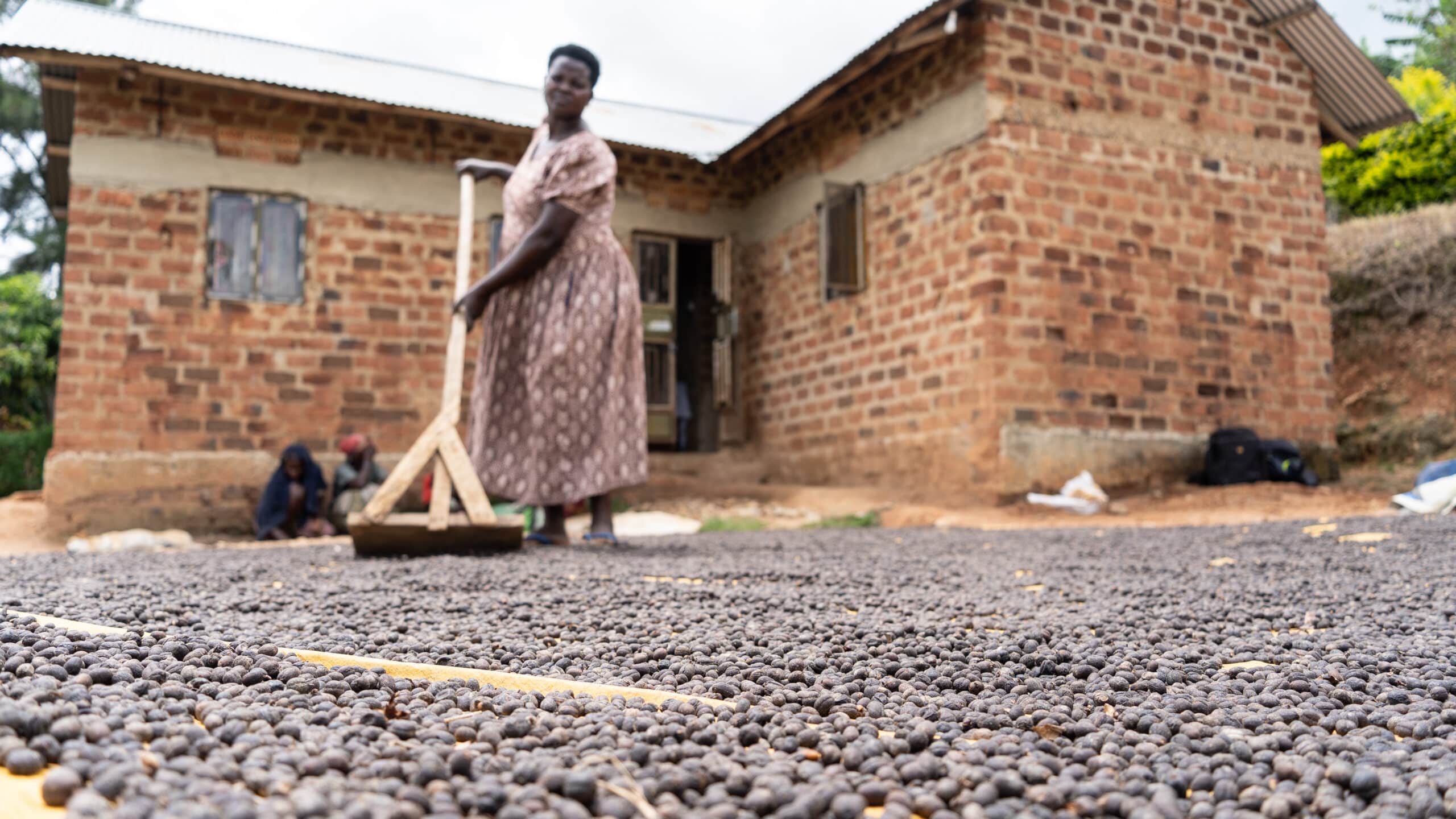Better Practices for a Better Future

Stella and her husband have been cultivating coffee in Kitagwenda for over six years. While it provides for her family’s immediate needs, traditional farming methods, pests, and low market prices have been a huge challenge for Stella, resulting in poor yield and low income.
“A frequent issue for us has been the premature opening of coffee shells and drying up of leaves due to various pests,” says Stella. Pests such as red blisters, coffee stem borer, and others often cause the leaves to turn yellow and dry up, resulting in lost or damaged produce. Additionally, they would find it difficult to fetch market prices for their coffee. “We usually get UGX 1200 per kilogram for fresh berries and UGX 20,000-22,000 per kilogram for dry coffee, which is low”, says Stella.

When RTV partnered with her community to improve farm yield through modern agricultural practices and better quality inputs, Stella participated in various training sessions. She learned care practices around planting, maintaining, and pruning coffee trees, using organic fertilizers to boost growth, and using organic pesticides to manage pests. After the training sessions, women-headed households in the community received an improved variety of Robusta coffee seedlings for planting.

Stella has started implementing much of what she learned during the training sessions. “Getting fertilizers and pesticides from the market is expensive. I look forward to implementing these new practices, including using organic fertilizers and pesticides. We hope that with the knowledge, we will solve most of the issues with our plantation and increase our output,” Stella said.

Be part of our journey. Support last-mile communities by supporting Raising The Village.
Let’s Stay Connected

